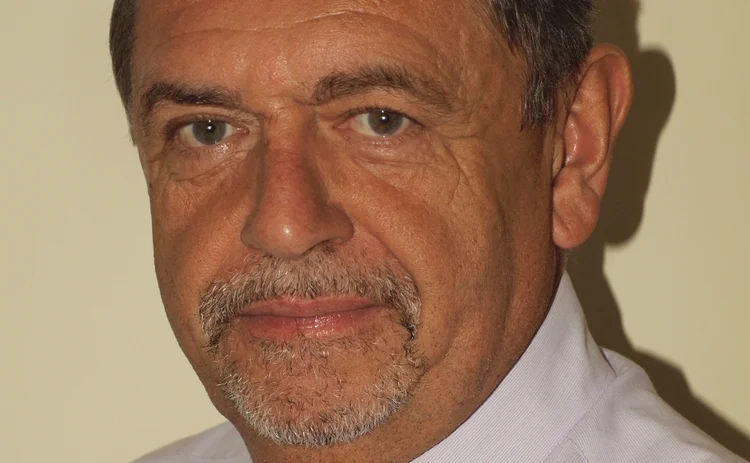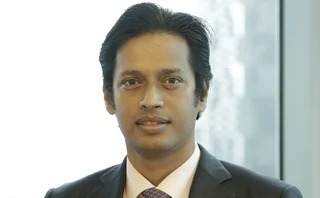
Industry Initiative of the Year: Certificate in Operational Risk Management
Institute of Operational Risk’s new qualification gains momentum

Until recently, people looking to choose operational risk as a career path lacked an entry-level training programme and qualification to set aspiring managers on their path – the usual solution being to invest in costly training programmes run by consultants.
Thanks to the Institute of Operational Risk, that is now changing. The IOR’s Certificate in Operational Risk Management (Corm), which soft-launched in May 2017, ahead of a full launch in February this year, fills a gap in the industry by providing a thorough grounding in the key principles of the discipline. This makes it suitable for those at the start of their careers, but also to more experienced professionals switching into operational risk.
“This gives everybody a professional qualification,” says George Clark, chairman of the IOR council. “We’ve had some experienced people, but the majority are new entrants into the business with one or two years of experience of operational risk. It’s ideally suited for those in the first line of defence.”
There are now 150 people studying for the award, while an additional 18 have already passed the exam and been awarded the certificate. Not only does the Corm bring a much-needed professional qualification to the industry, but it also raises the profile of operational risk management and the IOR itself.
Founded in 2004, the IOR is still a fairly modest professional body with only 650 members, but the Corm helps to further its mission of promoting skills and standards in the sector.
The advent of the Corm comes at an opportune time for the industry, when operational risk managers will benefit from having a certificate that demonstrates competence and expertise. With greater scrutiny of risk management processes in all jurisdictions, regulators have welcomed the development.
“When we were building it, we contacted regulators and they all said that when they go into an organisation they know it is telling a story. Regulators say they love to trust that story and they would trust it more if they could trust the organisation’s competency, and could see that staff there were skilled and qualified,” says Clark.
The fundamentals of operational risk are the same, whether it’s Zimbabwe or Vietnam. We need to develop discipline and remind people how holistic this is, and that it’s not about siloes
George Clark, Institute of Operational Risk
The Corm involves between 130 and 150 hours of self-directed study, based on a workbook, and the online exam comprises 50 multiple-choice questions for completion in 75 minutes. It is priced at £550 plus VAT, which includes the workbook, the exam and a year’s membership of the IOR, making it an affordable venture for most young professionals.
The IOR has gained accreditation from Awards for Training and Higher Education, and the certificate is regulated by the UK government’s Office of Qualifications and Examinations Regulation.
Filling a gap
“This fills a gap in the market. It’s the only accredited qualification that concentrates exclusively on the complete operational risk framework. Other qualifications have elements of accounting or balance sheet management,” says Elena Pykhova, director of education at the IOR.
Topics covered in the course include the fundamentals and management of operational risk, operational risk appetite, the spectrum of operational risk tools and the regulatory treatment of operational risk. The course was developed by 30 operational risk experts and academics over a period of three years, and it is designed to apply to all jurisdictions.
“The fundamentals of operational risk are the same, whether it’s Zimbabwe or Vietnam. We need to develop discipline and remind people how holistic this is, and that it’s not about siloes,” says Clark.
Roughly 75% of students have been UK-based so far, but international participation it is expected to expand as the qualification is adopted more widely.
Building block
“With the Corm, the IOR offers a great opportunity for risk practitioners from banks and insurance companies in our region to receive an internationally recognised certificate. For students in banking and finance, the Corm can serve as an additional building block in their studies,” says Rainer Sprengel, head of the German chapter of the IOR.
The course is deliberately designed to focus on management skills rather than quantitative expertise, but this may change in future if there is demand from regulators for a greater degree of measurement around, for example, Pillar II capital requirements, says the IOR.
As a small professional body with a limited marketing budget, the IOR has so far only advertised the Corm informally, reaching out to recruiters to push the merits of the course to aspiring practitioners. Demand is steadily rising, with around 30 people signing up each month at the last count.
“This qualification will stand out for everybody. It is spot-on for career development and will raise the status of the profession,” says Clark.
Only users who have a paid subscription or are part of a corporate subscription are able to print or copy content.
To access these options, along with all other subscription benefits, please contact info@risk.net or view our subscription options here: http://subscriptions.risk.net/subscribe
You are currently unable to print this content. Please contact info@risk.net to find out more.
You are currently unable to copy this content. Please contact info@risk.net to find out more.
Copyright Infopro Digital Limited. All rights reserved.
As outlined in our terms and conditions, https://www.infopro-digital.com/terms-and-conditions/subscriptions/ (point 2.4), printing is limited to a single copy.
If you would like to purchase additional rights please email info@risk.net
Copyright Infopro Digital Limited. All rights reserved.
You may share this content using our article tools. As outlined in our terms and conditions, https://www.infopro-digital.com/terms-and-conditions/subscriptions/ (clause 2.4), an Authorised User may only make one copy of the materials for their own personal use. You must also comply with the restrictions in clause 2.5.
If you would like to purchase additional rights please email info@risk.net
More on Awards
Environmental products house of the year: ENGIE
ENGIE is driving change in energy transition, with a strong focus on renewable energy and the liberalisation of power markets in Apac, which presents significant long-term growth opportunities. In recognition of its efforts, ENGIE GEMS has been named…
Natural gas/LNG house of the year: ENGIE
ENGIE continues to expand its services to better serve firms in Apac dealing with the challenges of energy risk management and supply
FRTB management solution of the year: Bloomberg
Amid the diverging timeframes and complex requirements of FRTB, Bloomberg offers a consistent, comprehensive and customisable solution for Apac banks preparing for implementation
Newcomer of the year: Topaz Technology
Jon Fox and former colleagues formed Topaz Technology in 2015. Having seen many different systems and, in some cases, written and built a few themselves, there was always something missing, leading them to build a system that unifies risk reporting and…
Technology vendor of the year: Murex
As a technology vendor, Murex places adaptability front and centre of everything it does, constantly enriching its MX.3 platform to ensure institutions can respond to new market opportunities as soon as they spot them
Currency derivatives house of the year: Deutsche Bank
Asia Risk Awards 2024
Interest rate derivatives house of the year: Standard Chartered Bank
Asia Risk Awards 2024
Derivatives house of the year, Taiwan: CTBC Bank
Asia Risk Awards 2024







